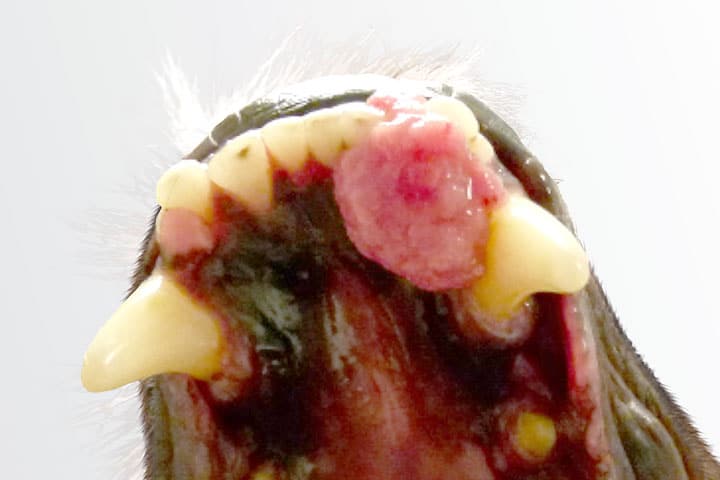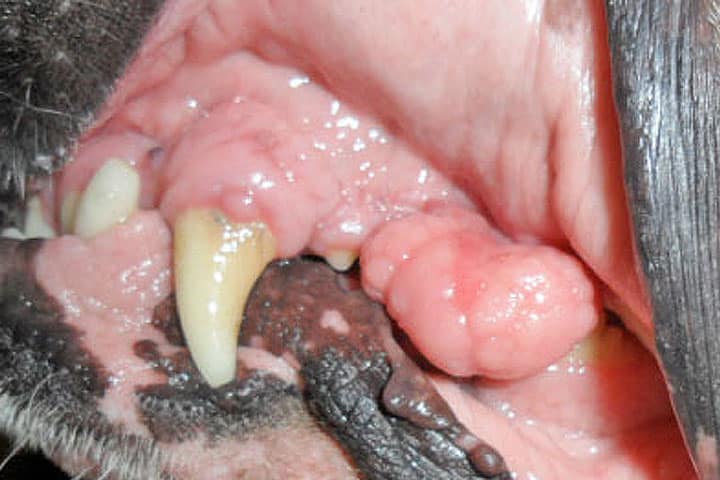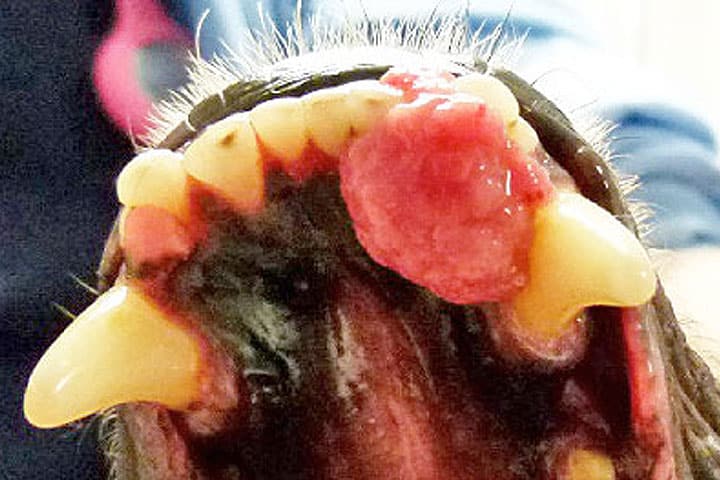
The most frequently diagnosed oral tumour in dogs is the epulis. This is a group of gingival tumours characterised by slow growth, with minimal invasion and no propensity for metastasis.
There are many names that are, have been and indeed will be used to define these tumours. These names, and the fact that they seem to change regularly, create confusion which we will not deepen by trying to elucidate further.
Epulides do cause discomfort. They induce pressure necrosis of bone, tooth loosening and loss and, once they are of a size that can be seen, are a source of constant discomfort. Treatment is recommended.
Epulides arise from the periodontal ligament, within the dental alveolus, or from vestigial remnants of dental enamel-forming organs. In both cases, they arise from a deep element of the jaw apparatus. They are never simply superficial proliferations of otherwise normal gingival tissue.
The gingiva is a reactive tissue which will proliferate in response to an irritant or inflammatory stimulus. Superficial biopsy of proliferative gingiva overlying an epulis may therefore erroneously merely indicate hyperplasia.
Sharp dissection or cautery to excise the bulk of a gingival mass is an excellent technique to obtain a biopsy in these and other gingival mass lesions. However, it will never achieve resolution of something that arises within the dental alveolus.
Complete removal of epulides requires removal of bone. In some cases, the tumour arises from the periodontal ligament on the most abaxial surface of the tooth root.
In this hypothetical situation, the tumour can be removed by burring the dental alveolus, removing the tooth and only a partial thickness of the associated bone. Typically, however, the mass has developed too extensively for this approach to succeed. In these circumstances, segmental maxillectomy or mandibulectomy is required.


Case Advice or Arranging a Referral
If you are a veterinary professional and would like to discuss a case with one of our team, or require pre-referral advice about a patient, please call 01883 741449. Alternatively, to refer a case, please use the online referral form
About The Discipline
Oncology

Need case advice or have any questions?
If you have any questions or would like advice on a case please call our dedicated vet line on 01883 741449 and ask to speak to one of our Oncology team.
Advice is freely available, even if the case cannot be referred.
Oncology Team
Our Oncology Team offer a caring, multi-disciplinary approach to all medical and surgical conditions.